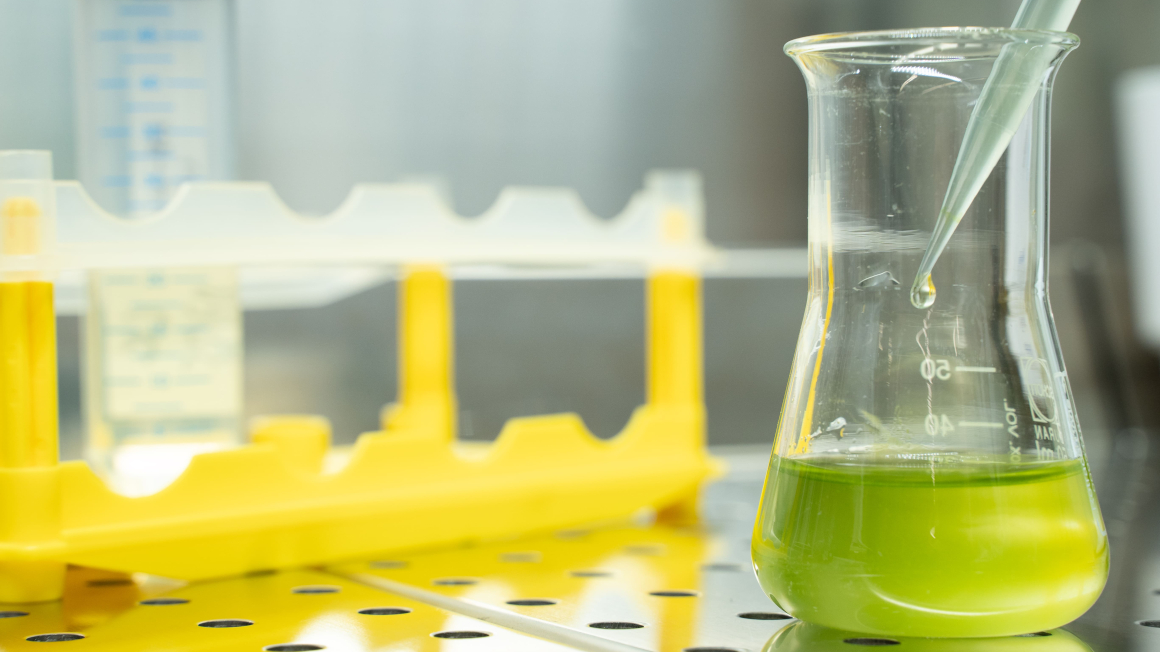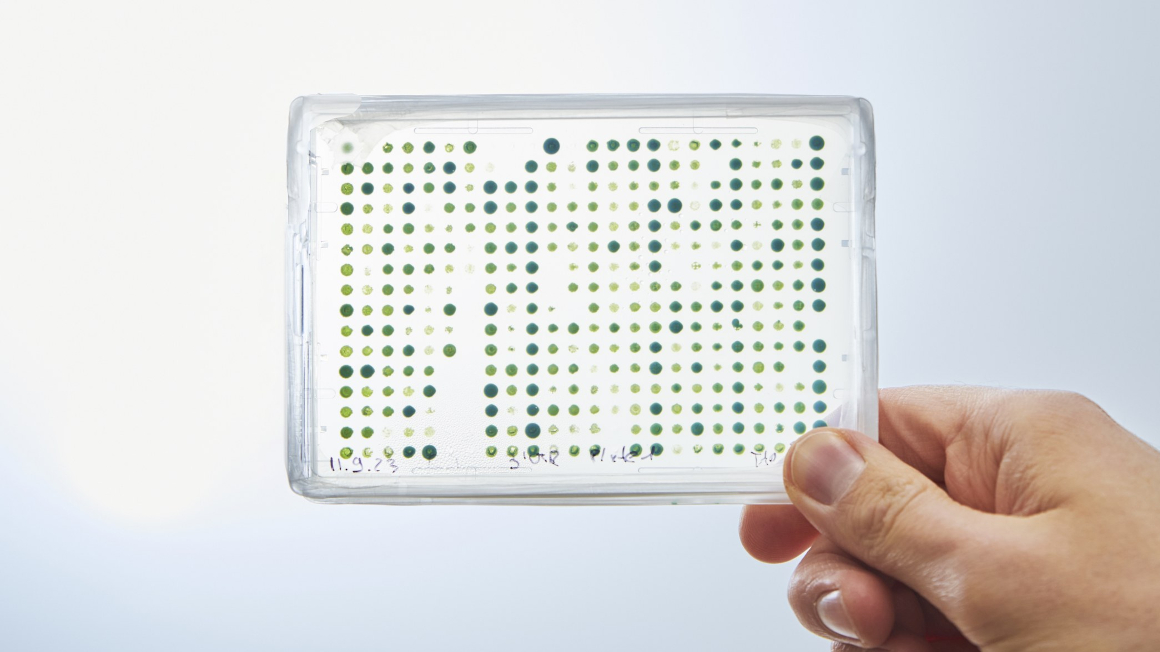Sustainable chemicals with microbial cell factories
Researchers at Chemnitz University of Technology, Leipzig University and the Fraunhofer Institute FEP are developing microalgae as ‘cell factories’ that can produce the important basic chemical glycolate from carbon dioxide and sunlight.

Glycolate – also known as glycolic acid – is a basic chemical and serves as a starting material for the production of preservatives, polymers and medicines. Until now, the substance has been obtained from fossil raw materials, some of which are toxic. Researchers at the Fraunhofer Institute for Organic Electronics, Electron Beam and Plasma Technology (FEP) in Dresden, Chemnitz University of Technology and Leipzig University are currently developing a sustainable process for glycolate production as part of the PhotoKon project.
Microalgae convert CO2 and light into basic chemicals
The interdisciplinary team is focusing on the microalgae Chlamydomonas reinhardtii, which is being optimised for industrial applications with the help of AI-supported screening and targeted mutation breeding in order to produce the basic chemical from CO2 and sunlight. ‘This interdisciplinary approach enables us to specifically utilise the natural photorespiration of algae – normally an undesirable side effect – for glycolate production,’ explains Severin Sasso from the University of Leipzig.
AI identifies suitable mutants from the algae colonies
Fraunhofer FEP has developed a novel process using low-energy electron radiation to precisely control mutations. The University of Leipzig has already demonstrated that photocatalytic glycolate production works in principle. It is developing an innovative pH-based screening method that uses colour indicators on agar plates, which change as a result of glycolate excretion by the algae cells, thereby identifying particularly productive algae cells. At Chemnitz University of Technology, the mutants are automatically evaluated using newly developed robot-assisted analyses and artificial intelligence, and the most promising mutants are selected from the algae colonies.
Environmentally friendly alternative to fossil-based chemicals
‘By isolating promising cell factories, both the biological basis for the effect of ionising radiation on the cells can be investigated and scaling can be implemented in technical bioprocesses,’ the researchers write. According to them, the new process could make an important contribution to a regional, sustainable bioeconomy by using CO2 as a raw material source and replacing fossil-based chemicals with environmentally friendly alternatives.
bb


